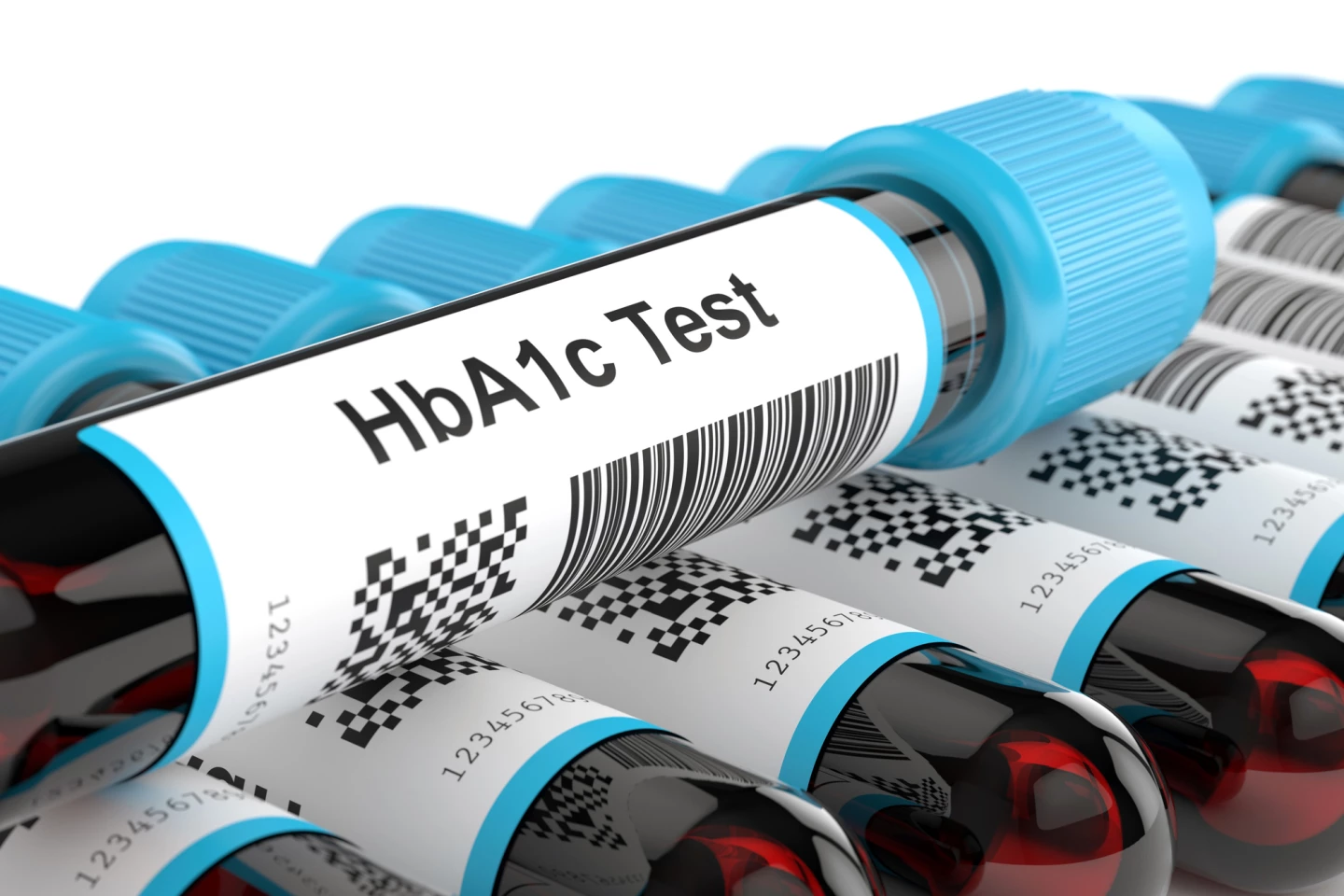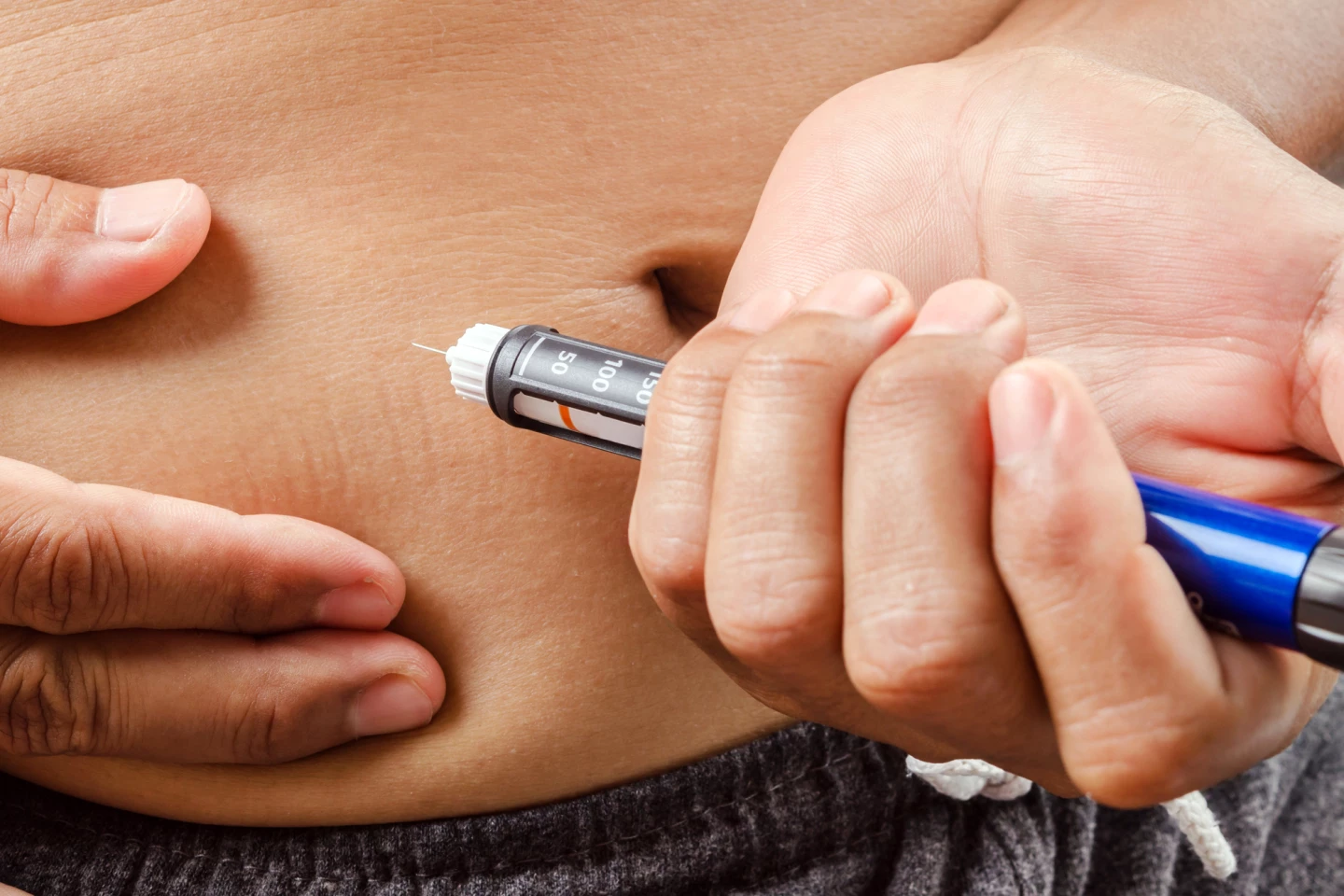Clinical trials of a new, once-a-week insulin have shown that it controls blood sugar as well as daily injections of an existing long-acting insulin in type 1 and type 2 diabetics. This means that some diabetics may soon not need to inject themselves as often.
Type 1 diabetics, and some type 2 diabetics, need insulin to keep their blood sugars in range and reduce their risk of developing complications. Insulin degludec (Tresiba) is a newer, longer-acting or basal insulin that gives diabetics a steady stream of the drug over 24 hours. While it’s not injected as frequently as short-acting insulin, which is taken with meals, it still needs to be taken at least once a day.
Now, the effectiveness of a novel basal insulin, efsitora alfa, that’s designed to be injected once a week has been tested in two separate Phase 3 clinical trials – one with type 1 diabetics and one with type 2 – and has yielded some very promising results.
“Traditionally, basal insulins are dosed once a day – a treatment schedule that can make compliance difficult for a significant portion of people living with type 2 diabetes,” said Carol Wysham, MD, from the University of Washington School of Medicine and one of the study’s lead authors. “Efsitora has the potential to address treatment burden and improve adherence – all while lowering A1C. These results can make a significant impact for people living with type 2 diabetes looking for a once-weekly option that provides similar outcomes as daily insulins.”
Efsitora alfa vs degludec in adults with type 1 diabetics
This 52-week Phase 3 trial (QWINT-5) aimed to assess the effectiveness and safety of efsitora compared with degludec in adults with type 1 diabetes. Between August 2022 and May 2024, 623 participants were randomly assigned to receive once-weekly efsitora or once-daily degludec. Those running the trial looked at changes in participants’ hemoglobin A1c (HbA1c), a blood test that shows what a person’s average blood sugar was over the past two to three months.

HbA1c is a good indicator of blood sugar control in people with diabetes and is expressed as a percentage. In someone without diabetes, the normal range for HbA1c is between 4% and 5.6%. Efsitora produced a mean reduction in HbA1c from 7.88% at baseline to 7.41% by 26 weeks, or halfway through the trial. At the same time point, degludec had reduced HbA1c from 7.94% to 7.36%.
The trial investigators did find, however, that participants taking efsitora had higher rates of hypoglycemia (low blood sugars), including severe hypoglycemia, than those taking degludec. As a result, they suggested the need for further evaluation of efsitora doses in people with type 1 diabetes. Hypoglycemia is a serious condition. If blood sugars stay low for too long, the brain is starved of its energy source, and this can lead to seizures and coma.
This was what’s called a ‘non-inferiority trial,’ a type of clinical trial that’s usually done when a placebo can’t be used that assesses whether a new drug is unacceptably worse than one already in use by more than a prespecified non-inferiority margin. Essentially, the non-inferiority margin is the maximum clinically acceptable extent to which the new drug can be less effective than the existing one. Typically, in diabetes trials, the US Food and Drug Administration (FDA) will accept a non-inferiority margin of 0.3 or 0.4 HbA1c percentage units. In the present trial, the non-inferiority margin was 0.4, meaning that efsitora wasn’t worse than degludec at reducing HbA1c.
Efsitora vs degludec in adults with type 2 diabetes
Like the above-mentioned trial, this Phase 3 trial (QWINT-2) also ran for 52 weeks but it involved type 2 diabetics who had not previously taken insulin. Sometimes, people with type 2 diabetes need to start taking insulin when diet, exercise, and oral medications no longer effectively control their blood sugar levels.

A total of 928 participants randomly received either efsitora or degludec. As with the other trial, the primary outcome was changes in HbA1c from baseline. The trial also included people who were taking glucagon-like peptide-1 (GLP-1) receptor agonists. The mean HbA1c decreased from 6.97% at baseline to 6.97% at week 52 with efsitora and from 8.24% to 7.05% with degludec. The results showed that, for type 2 diabetics, efsitora was non-inferior to degludec concerning the change in HbA1c in participants who were taking GLP-1s as well as those who weren’t. The time that participants spent in their target blood sugar range (‘time in range’) was 64.3% with efsitora and 61.2% with degludec.
Compared to the trial involving type 1 diabetics, the rates of hypoglycemia in this trial were far lower, for both drugs. No episodes of severe hypoglycemia were reported with efsitora; six were reported with degludec.
“For the past century, we’ve been searching for the next scientific breakthrough that would alleviate the complexity that comes with starting insulin treatment,” said Jeff Emmick, senior vice president of product development at Eli Lilly and Company. “With these results, we believe we’re headed towards a future where people with type 2 diabetes who use basal insulin can achieve their desired results with a. simple treatment option like efsitora.”
The results of the trials were presented at the 2024 European Association for the Study of Diabetes (EASD) Annual Meeting in Madrid, Spain.
Both trials were funded by Eli Lilly, the makers of efsitora. The study of the effectiveness of efsitora in type 1 diabetics was published in The Lancet. The study of its effectiveness in type 2 diabetics was published in The New England Journal of Medicine.
Source: Lilly







